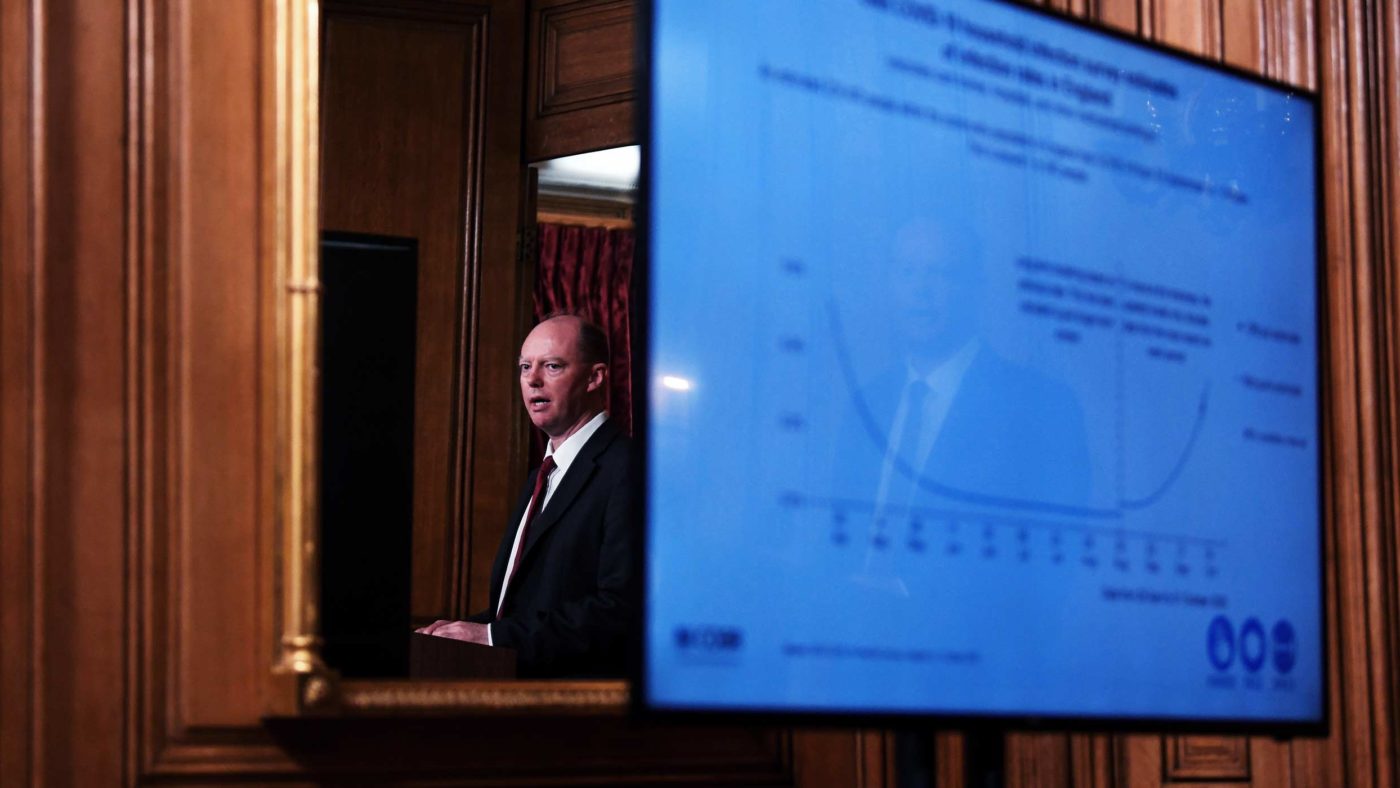Things didn’t start well. The Prime Minister arrived 90 minutes late for his big Lockdown 2.0 briefing, then began the show with a bunch of gloomy graphs seemingly composed on a late Soviet version of PowerPoint.
If nothing else, this pandemic has proven that the prospect of some kind of British tech utopia looks remote, given the Government’s top officials don’t yet have access to a decent clicker.
What Messrs Johnson, Vallance and Whitty had to say was more worrying still. Another nationwide lockdown – or more accurately shutdown – from Thursday. Pubs, restaurants and shops that have battled manfully through the worst year of their commercial lives will close again.
If the economics are bad, the politics look pretty horrid too. Just ten days ago the Conservatives’ own Twitter account was scolding Labour for suggesting another national lockdown, now their own leader is imposing one. And recent funding rows look by-the-by now the full 80% furlough scheme has been revived. That’s the thing about coronavirus, it has a habit of biting confident predictions in the backside.
By their very nature, lockdowns are a failure: of overall strategy, individual policies, the public’s adherence to advice or, in the case of the UK, probably a combination of all three.
With the inevitable frustration and disappointment many of us now feel comes a temptation to try and pinpoint a ‘hinge moment’ where if we’d done this *one* thing differently, we’d be looking at a different scenario now. That’s understandable – it’s only human to wonder ‘what if…?’ sometimes.
Take the report from economist Thimo Fetzer earlier this week suggesting that the Eat Out to Help Out scheme helped accelerate the virus. It sounds intuitive enough: encouraging people into indoor spaces during a pandemic was always a risky policy, and Fetzer has meticulously analysed the data to show a link between the scheme and rising cases.
Still, is it fair to conclude from that that we would be in a different situation now without the scheme? For one thing, reports this week suggest that many Covid cases were brought to the UK by travellers returning from Spain, so perhaps the key was not being much stricter on allowing people in and out of the country. Or what about encouraging students back to universities, resulting in a huge spike in cases on campus? The answer, again, is probably that a combination of these policies pushed us to this point.
The explosion of cases throughout Europe should give us pause for thought though. Take Germany, considered by many (myself included) to have had a model pandemic, but which now also faces a nationwide lockdown. Likewise France, whose muddled response to the pandemic Nicolas Bouzou documented on these pages recently, and Belgium, with one of the highest per capita death rates in the world.
Remember too that back in the summer the Government was focused not just on controlling the virus, but on trying to get people’s spirits up after a thoroughly miserable spring, and giving life to an economy that had been utterly hobbled.
Clearly, the fact we’re now locking down again suggests very strongly that the policy mix was wrong, but let’s not pretend these were straightforward decisions. Pointing to SAGE announcements and saying ‘but scientists recommended X policy’ ignores that SAGE’s remit is not the same as that of politicians trying to balance economic harm with public health, all the while being furiously lobbied by businesses, their own constituents and colleagues.
The inverse of the ‘if only we’d done this’ tendency is the hope of a ‘game-changer’ – the idea that a wizard new test or tracing innovation will bring us swiftly back to normality. We’ve been through a few of these already, so forgive me if I don’t put have much faith in the newly announced flurry of rapid 10-15 minute tests to get us back into the pub for a Christmas knees-up. (Though at least Boris appears to heeding the advice of CapX columnists to get the Army involved).
What now then?
Given how long the last one lasted, it seems unlikely this slightly softened shutdown will end as currently planned on December 2nd. The short, cold midwinter days also lend a particularly bleak aspect to an already bleak situation.
Nevertheless, if you are looking for hope it lies in the miraculously swift development of Covid vaccines, several of which are now in their final stages.
Oh, and the Downing Street slide shows really can only get better.
Click here to subscribe to our daily briefing – the best pieces from CapX and across the web.
CapX depends on the generosity of its readers. If you value what we do, please consider making a donation.


